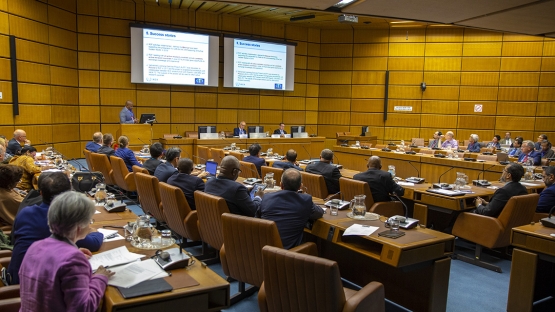Helping countries new to nuclear power to develop regulations and guides was the focus of the ninth plenary meeting of the Regulatory Cooperation Forum (RCF), where discussions took place on how to complete the regulations of newcomer countries and how to provide further support.
Countries introducing nuclear power need help in developing regulations and guides for their nuclear power programme and need to establish regulations that fit their specific requirements. The goal of the 29-member RCF is to support these countries in developing their nuclear safety infrastructure.
In his opening remarks, Juan Carlos Lentijo, IAEA Deputy Director General and Head of the Department of Nuclear Safety and Security, spoke of the increasing demand for support from RCF due to the growing number of countries introducing or planning to introduce nuclear power. The session, he said, provides an opportunity to prioritize and action the future work. “Effective coordination will avoid duplication of effort and increase our impact.”
Bangladesh, Nigeria and Sudan joined RCF as recipient countries this year, while Ghana and Morocco became members in 2017. Belarus, Jordan, Poland and Viet Nam continue to receive support from the group.
“The growth in RCF’s membership is a vote of confidence in the work we do,” said Bismark Tyobeka, RCF’s Chairman and Chief Executive Officer of South Africa’s National Nuclear Regulator. “We need to add more effort to improve cooperation and coordination and make the use of resources more effective to achieve and sustain a high level of nuclear safety consistent with IAEA safety standards and guidance.”
Today’s meeting was a follow up to a discussion held earlier this year, in which recipient countries expressed the need for more practical assistance in drafting safety regulations and guidance documents, said Stewart Magruder, a senior IAEA nuclear safety officer. “The government and the legal infrastructure are unique in each country, and regulations need to be tailored to fit the specific circumstances. You can’t just cut and paste.”



